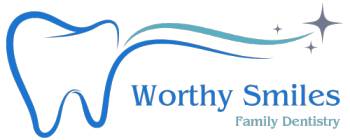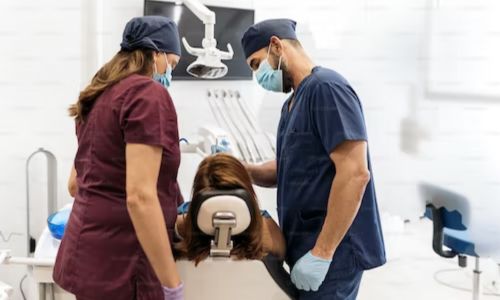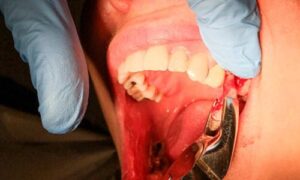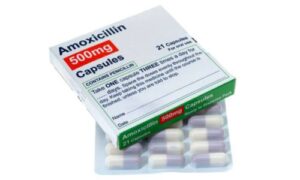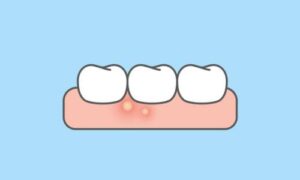If you experience a dental emergency, you should seek help from an emergency dentist as soon as possible. But what should you expect during an emergency dental visit? In this article, we will provide a detailed guide on what to expect when you visit an emergency dental clinic.
Introduction
Dental emergencies can happen to anyone at any time. They can be caused by various factors, including accidents, injuries, and sudden onset of pain. When a dental emergency occurs, it is essential to seek help from a dentist immediately. Emergency dentists are available to provide immediate care and relief for patients experiencing dental emergencies.
What is a dental emergency?
A dental emergency is any situation that requires immediate attention from a dental professional. Some common examples of dental emergencies include:
- A severe toothache
- A broken or chipped tooth
- A knocked-out tooth
- A lost filling or crown
- Gum abscesses
- Facial swelling or bleeding
If you are experiencing any of these symptoms, you should seek help from an emergency dentist as soon as possible.
Finding an emergency dentist
If you are experiencing a dental emergency during regular business hours, contact your regular dentist. They may be able to see you on short notice, or they may refer you to an emergency dentist.
If your dental emergency occurs outside of regular business hours, you can search online for emergency dental clinics. Many emergency dental clinics have extended hours; some even provide 24/7 service.
What to bring to your emergency dental visit
When you visit an emergency dental clinic, you should bring the following items with you:
- Your insurance information
- Any relevant medical records
- A list of medications you are taking
- Your photo ID
Registration and initial examination
When you arrive at the emergency dental clinic, you must complete some paperwork and provide your insurance information. You will then be taken to an examination room, where the dentist will perform an initial examination to determine the nature and severity of your dental emergency.
Treatment options for dental emergencies
Once the dentist has assessed your condition, they will discuss treatment options. The type of treatment you receive will depend on the nature and severity of your dental emergency.
Toothaches
Toothaches can be caused by various factors, including tooth decay, gum disease, and trauma to the tooth. The treatment for a toothache will depend on the cause of the pain. Sometimes, a filling or crown may be necessary to repair the tooth. In more severe cases, a root canal may be required to remove the infected or damaged tissue inside the tooth.
Broken, chipped, or cracked teeth
Broken, chipped, or cracked teeth can be caused by various factors, including accidents, injuries, and biting down on complex objects. The treatment for a broken, chipped, or cracked tooth will depend on the severity of the damage. Sometimes, a filling or crown may be necessary to repair the tooth. In more severe cases, the tooth may need to be extracted and replaced with a dental implant or bridge.
Knocked-out teeth
A knocked-out tooth is a dental emergency that requires immediate attention. If you can find the tooth, pick it up by the crown (the top part of the tooth) and rinse it off with water. Do not touch the root of the tooth. If possible, place the tooth back in the socket, or store it in a cup of milk or saliva until you can see the dentist. The dentist may reattach the tooth if it is appropriately preserved.
Lost fillings or crowns
Lost fillings or crowns can expose the sensitive tissue inside the tooth, causing pain and discomfort. The dentist may be able to replace the filling or crown or may recommend a more permanent solution like a dental implant or bridge.
Gum abscesses
Gum abscesses are pockets of pus that form in the gums, usually due to an infection. The dentist may drain the abscess and prescribe antibiotics to treat the disease.
Root canals
A root canal is a dental procedure used to treat an infected or damaged tooth. The dentist will remove the infected or damaged tissue inside the tooth and fill it with a particular material to prevent further infection.
Extractions
Tooth extractions may be necessary if the tooth is severely damaged or infected and cannot be saved. The dentist will use a local anesthetic to numb the area around the tooth and remove it from the socket.
Recovery and follow-up care
After your emergency dental procedure, you may experience some pain and discomfort. The dentist will provide instructions on how to care for your mouth and manage your pain. You may need to avoid certain foods and activities for some time while your mouth heals.
It is also essential to schedule a follow-up appointment with your regular dentist to ensure your teeth and gums are healthy and prevent future dental emergencies.
Conclusion
A dental emergency can be a stressful and painful experience. However, knowing what to expect at an emergency dental visit can make you better prepared to receive the care you need. Remember to seek help from an emergency dentist as soon as possible if you experience a dental emergency.
FAQs
How can I prevent dental emergencies?
You can prevent dental emergencies by practicing good oral hygiene habits, such as brushing twice daily, flossing daily, and visiting your dentist regularly for cleanings and check-ups. You should also avoid chewing on complex objects like ice or popcorn kernels and wear a mouthguard if you play sports.
How do I know if I need to see an emergency dentist?
If you are experiencing severe tooth pain, have a broken or knocked-out tooth, or have a dental abscess, you should seek emergency dental care as soon as possible. Other signs of a dental emergency may include bleeding gums, swelling in the mouth or face, or a loose or dislodged filling or crown.
How much will an emergency dental visit cost?
The cost of an emergency dental visit will depend on the type of procedure you need and whether you have dental insurance. Without insurance, you can expect to pay several hundred pounds or more for emergency dental care.
Will my dental insurance cover emergency dental care?
Most dental insurance plans will cover at least a portion of emergency dental care. However, it is essential to check with your insurance provider to understand your specific coverage and any out-of-pocket costs you may be responsible for.
Can I see my regular dentist for a dental emergency?
It depends on the severity of the dental emergency and whether your regular dentist offers emergency services. In some cases, your regular dentist may be able to see you for an emergency appointment. However, if the emergency occurs outside of regular business hours, you may need to seek care from an emergency dentist or urgent care facility.
